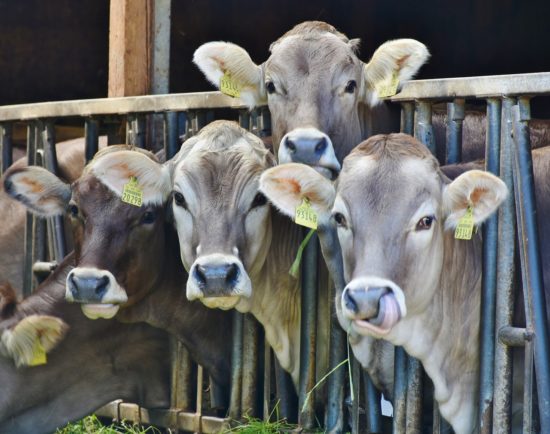“How Farm Animals Contribute to the Spread of Drug-Resistant Bacteria”
“Growing threats to public health could be addressed by cutting-edge research that reveals how farm animals contribute to the spread of drug-resistant bacteria, a study suggests.
Scientists are calling for new research combining genome analysis with studies that map the spread of infections to reveal how cows, pigs and chickens might play a role in helping drug-resistant bacteria to thrive.
Determining if livestock are the source of such bacteria could inform measures to combat the rise of drug-resistant infections with no effective treatments, researchers say.
Previous research suggests resistant E. coli bacteria – recently classified as a major health threat by the World Health Organization – can be passed directly to humans by livestock.
Limitations in these studies mean however that the role of farm animals in the rise and spread of drug-resistant bacteria remains poorly understood, researchers say.
A team led by scientists at the University of Edinburgh carried out a systematic review ofcurrent evidence examining the transfer of resistant E. coli between farm animals and people.
Their findings highlight a need for more robust data and state-of-the-art genome analysis to shed light on how drug-resistant bacteria arise and spread in human and animal populations.
The study, published in the journal Foodborne Pathogens and Disease, involved researchers at the universities of Liverpool and Oxford, and the International Livestock Research Institute in Nairobi, Kenya.
The work was supported by the Medical Research Council, Biotechnology and Biological Science Research Council, Economic and Social Research Council, and Natural Environment Research Council.”
Read more: ICT

